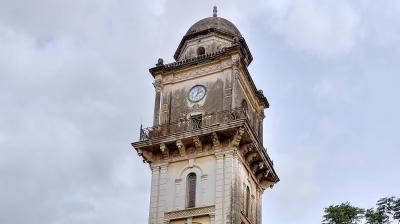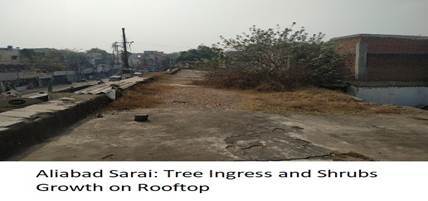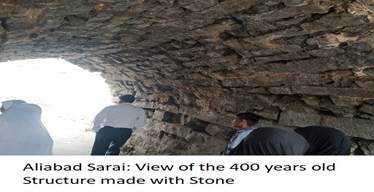Compassionate Citizenship & Responsible Activism Project
The Programs
ICAN (Indian Children’s Action Network) and Youth TRAC are affiliates of COVA that work with school children and college, university and corporate youth respectively.
Education System and Social Issues
Our education system and society as a whole are oriented and geared to produce efficient professionals and not necessarily socially aware beings that understand and are sensitive to different social issues. The best of our doctors, engineers, lawyers, computer professionals, management experts and others may have global competence in their own areas of specialisation but most are unable to develop adequate understanding and a sensitive perspective to key critical social issues like poverty, social discrimination, child labour, gender justice, human rights, environment degradation, conflicts and harmony etc. As a result, majority of our people, including the best qualified, are not engaged in addressing our social issues that seem to be proliferating and intensifying, and could one day acquire fatal dimensions that could become detrimental for all.
This is not because they are not sensitive human beings or unconcerned citizens but because most do not get opportunities to gain any systematic exposure, proper experience and adequate understanding of social issues through the formal education system or social circles or the family environment they are exposed to.
- Extension Lectures:
COVA has compiled a list of over 200 Resource Persons in Hyderabad with collective expertise in a range of social issues like poverty;social exclusion and discrimination; child, gender, animal, human and citizenship rights; environment; economy; taxation; conflict and peace, international relations etc. Besides, many experts and prominent personalities from other parts of India and from other countries also intimate to COVA about their visits to Hyderabad enabling the opportunity to organise their lectures.
Presently COVA works with 100 schools, 20 collages and 5 universities to organise the Extension Lectures with a coverage of 25, 000 persons. COVA also organises the Extension Lectures occasionally with Clubs of professionals like the Rotary, Lions etc. COVA would associate with at least 12 professional clubs for regular Extension Lectures from 2015. It is proposed to organise 300 Extension Lecture for 150 organisations and institutions in a year, along with 150 exposure visits. Hence, each organisation / institution associated with the program would get the benefit of two extension lectures and one exposure visit.
- Exposure Visits:
COVA has found that exposure visits of students, youth and professionals to different communities affected by extreme poverty, communal conflicts, child labour and other social deprivations and issues provides a direct first-hand experience of the real life situations, inculcates sensitivity to the magnitude of the problem and motivates involvement at personal levels for addressing the issues.
- Global Walks
Consulates or Cultural Centers of USA, UK, Iran, France, Germany, Turkey and Yemen are located in Hyderabad. Collaborations with these Centres of all the eight countries will be established to initiate the Global Walk Program.
The Global Walk Program would consist of regular presentations to students, youth and professionals by representatives of the consulates, cultural centres and representatives of different countries on the themes of history, culture, political and social processes in their countries including the problems faced and solutions attempted. This will broaden the horizon and perspective of the participants to enable them to develop better understanding and empathy with people of other countries and provide some innovative approaches to deal with their own problems by gaining insights from similar situations in other countries and successful strategies being used there.
It is proposed to organize 50 Global Walk Programs in a year to cover 50 organisations and institutions involving schools, colleges and professional clubs.
The Global Walk Program would conclude with an Annual Global Fest sometime in February that would comprise of literary and cultural events involving essay writing, elocution, poster and slogan writing, songs, dance, play and cuisine etc. focusing on different countries. Winners of different events could be sent on exchange visits to other countries. Consulates and cultural centers of some of the eight countries located in Hyderabad have already offered to sponsor some of the participants of the Global Fest for exchange visits to their countries and it is hoped that it will be possible for 15 to 20 participants to benefit from this offer.
- Social Activism
Most interventions with students and youth are limited to inputs for personality development or awareness generation on some social issues but do not extend to enlisting their involvement to address the problems through activism. COVA has been involved in orienting and enabling school students and college / university youth for social activism by providing regular training on gaining systematic understanding of different social issues and formulating strategies for their resolution through community mobilisation, representations to elected representatives, political parties, officials; use of media; employment of non-violent agitation options, recourse to courts of law etc.
It is proposed to continue the Social Activism Program by providing 3 training’s on the theme of Orientation Programs on Social Advocacy and Global Citizenship for 10 days each to 60 students selected from schools, colleges and universities. The objective of this program is to enable students to understand principles and practice of activism and make them responsible citizens. These training’s will involve Sessions on communications skills, leadership development, sensitization to social issues, importance of foreign policy, need for friendly relations with neighboring countries and principles and practice of social advocacy. There will also be action research, interviews and field exposure visits to give students firsthand experience of social problems and prepare them for better participation in the Programs of COVA like Face to Face with Little Citizens where they will interact with elected representatives and officials on different social/ civic problems; Project Work on Social Activism.
Sambandh, an annual event organised by COVA between 6th and 9th August to commemorate the bombing of Hiroshima and Nagasaki in August 1945 will also be organised to orient and sensitize students to the theme of going beyond war and violence for the creation of a just world through the medium of cultural and literary competitions.
- Project Work on Social Issues
To promote an understanding of action research, COVA would facilitate 200 students from member schools and colleges to undertake systematic study of selected social issues and produce project reports detailing the problems and suggesting strategies and solutions for their resolution. These Project Reports along with models will be displayed at a One Day Project Display Exhibition. Subsequently, the students concerned will be encouraged to address the problems they have studied through continued activism.
Themes selected for the Project Work on Social Issues during the year the last five years were:
- 2011-12: Environment, Child Labor, Issues of Government Schools, Health and Sports and Recreation.
- 2012-13: Heritage (historical but neglected monuments of Hyderabad), Understanding the making of the Mindset of a Successful person, Endangered Species (flora & fauna), Bio-diversity, Nuclear power.
- 2013-14: Parks and Playgrounds, Garbage Disposal, junk food, child labor and government hospitals.
- 2014-15: Global Warming, How to Make India Litter Free, Citizens Charters and their Functioning, Speed Driving and Understanding the issue of Begging and its Solutions.
- 2015-16: Care for Elders, Swatch Hyderabad, Corruption and Eve Teasing.
Some themes also being proposed by the school students for the Project Work like: (1) Exploring Cultural Commonalities of South Asia, (2) Understanding Different South Asian Countries and Study of Their Defense and Social Budgets etc. to underscore the need to promote friendship and peace in the region.
- Koshish Theatre Group
A theatre group enrolling children and youth from diverse community, gender, class and locality backgrounds was formed by COVA in the year 2000 to impart training in dramatics to talented youth and also use the medium of theatre to spread awareness on different social issues. Koshish performances are widely acclaimed for their success in sensitizing people on different social issues and this group has given more than 1000 performances on the streets and staged about 100 performances in prestigious auditoriums of the country. This group bagged many prizes in state and national competitions. The Team has a number of plays on the issues of Communal Harmony and National Integration, Governance Issues, Gender Justice, Child Rights, Environment and Civic Issues etc.
COVA has effectively used the plays by Koshish to initiate discussions and debate on a variety of social issues in the community, educational institutions and even professional groups and bodies. COVA proposes to use Koshish to flag the issues of preferring cooperation and peace over militarization, nuclear weapons and wars between India and the neighboring countries; especially Pakistan. It is proposed to take members of Koshish to Pakistan as part of the delegation for the Exchange Program to Pakistan to initiate discussions on issues of mutual interest and concerns amongst youth through the medium of theatre. Similarly, youth theatre groups from Pakistan will also be invited to perform in Hyderabad and other Indian cities to highlight the similarity of issues and problems and the need for cooperation.
Groups in Pakistan are also being contacted to undertake similar sensitization of students and youth in their areas of operation to enable them to develop the required orientation and sensitivities that would be essential to carry forward the processes of interaction, dialogue, cooperation and collaborations when they get to meet youth from India in person through the exchange programs or on the net through different platforms.
Coverage Details
Schools: 100x 250 students 25,000
Colleges: 20×150 students 3000
Universities- 10x 150 Students 1500
Clubs- 20x 25 members 500
Total 30,000
Conclusion
The Compassionate Citizenship Project and Responsible Activism Project is expected to provide an introduction to children, youth and professionals to different dimensions of compassionate citizenship and propel them on to engage in initiatives for social transformation for justice and peace.
World Heritage Day
Preservation Only When Students – The Meek of the World are Empowered
It should be a matter of national pride that India is one of the richest centers in the world in terms of its diverse history, culture, monuments and historical sites. Some of our cities may be having more monuments, historical sites and heritage structures than many countries of the world. But it is a shame that India spends less than 1% of its annual budget on culture.
All through the history of the world, demolition of heritage was considered essential to establish the dominion of the victor. But maximum destruction was in the past 100 years due to the many wars and conflicts, sectarian violence, apathy of the people and neglect by the governments.
Of late crass commercialization in the name of development is sounding the death knell for heritage. A Palace in Hyderabad with exquisite woodwork was demolished through a clever stratagem despite court orders for its protection to make way for a hideous commercial structure. Similarly, many ancient monuments have disappeared and continue to face the bulldozer despite Archaeological Survey of India and its responsibility to save heritage. This is largely because the governments have themselves become leading culprits and are enacting new laws to make demolitions possible with impunity.

Students Represent to Make Heritage Clock Tick Again
Why have we come to such a pass?
One of the reasons could be our education system and society as a whole that is oriented and geared to produce efficient professionals and not necessarily socially aware beings that understand and are sensitive to different social issues and subscribe to moral and ethical values required of a human being.
So when our politicians, bureaucrats, businesspersons and even common people see a historical monument or a heritage site, all they see is an opportunity for commercial venture that can fill their coffers- and the bulldozer arrives.
Thanks to our education system, it is money that has become the predominant value of our societies and all other social issues are no longer a concern- thereby creating a heartless society.
Realizing this malice, COVA had launched an initiative titled Compassionate Citizen and Responsible Activism Program to sensitize school and college students to social issues and concerns through systematic orientation and field engagements to enable them to understand the issues and internalize their gravity. This also results in the students developing the required compassion as human beings and helps in enlisting their commitment to address social problems to make society humane and just.
Given below are two examples of students successfully undertaking restoration of heritage structures and media reports of the possibility and impact of social activism by school students – who are taken to be ignorant and powerless- the meek of society.
The Bible says the meek shall inherit the earth. And perhaps it is only when the meek inherit the earth, humanity will walk on the planet again.
![]()
TODAY’S PAPER » NATIONAL » ANDHRA PRADESH
HYDERABAD, June 11, 2013
Student activism: it gets GHMC going
SPECIAL CORRESPONDENT
If you are inspired and committed you can do a lot. This was proved by a group of student activists who made the GHMC set right the dysfunctional clock atop the Mahbub Chowk. What the students did was to dash off representations to the civic body which forced it to repair the clock which had stopped functioning.
Heritage protection
The GHMC also ordered an enquiry into the excess charges collected at parking lots and agreed to put up boards displaying the approved parking fee. The students also convinced a local channel to telecast messages and run scrolls on water conservation and other social issues.
The student activists plan to get government support and corporate sponsorship’s for restoration and protection of heritage buildings in Hyderabad and strive for the establishment of Hyderabad Culture Museum at Khurshid Jah Dewdi.
All this is the result of a month-long activism programme conducted by COVA and ICAN on various social issues. A theatre training workshop was also organised by the Koshish Theatre Group, a COVA affiliate, wherein 50 students participated.
According to a press release, the student activists identified water shortage as the main problem in Hyderabad besides encroachment of water bodies, constructions in catchments areas of all water bodies (despite GO 111) and industrial pollution.
Representations made to GHMC force the civic body to repair dysfunctional clock
Reclaiming Heritage:
Students of 41 schools working on Heritage spanned out into the city to identify and document about the heritage structures that were mostly in a state of neglect. The sites they visited were Aliabad Sarai, Khurshid Jah Baradari, Qutub Shahi Tombs, Bagh Ki Bowli, Mahboob Mansion, Mecca Masjid, Charminar and others. Moved by the dilapidated condition of some of these heritage buildings, they wrote to the Department of Archaeology and Department of Municipal Administration and Urban Development.
A Group of 10 students from 5 schools formed a team and visited Aliabad Sarai that was constructed over 400 years back along with Charminar by the Qutub Shahi Kings as a place for overnight stay for travellers. It is now in an extremely neglected state with small shops housed there.


The plaster is peeling off with tree ingress and scrubs growing on the roof top that could soon damage the structure to the point of collapse.
A matter of great concern is that the authorities are planning to demolish this important historic structure to make way for Metro Rail and road widening.

Representation of Students to Authorities
The Students interacted with the locals to understand the history and issues and wrote a representation to the Director of Archaeology and Secretary, Municipal Administration and Urban Development urging them to desist from demolition and take immediate steps for protection, restoration and beautification of the place that it deserves.
The students resolved to pursue the matter to ensure the Sarai regains its past glory and is treated with respect.

Dec 19 2014 : The Times of India (Hyderabad)
Students get into social activism
Hyderabad
TIMES NEWS NETWORK
Social activism in schools of Old City is fast catching pace with students not only joining hands in awareness issues but also finding solutions for them. These students are studying, doing research and preparing projects on issues pertaining to the society.
Almost 100 schools in the city, in association with Confederation of Voluntary Associations (COVA) and India Children’s Action Network (ICAN), are motivating students to undertake activism to solve social problems and enabling them to become socially-conscious and responsible citizens.
Mohammed Turab, executive secretary of COVA, said: “The objective of such social activism projects is to make them independent in not only identifying the problem but also in solving them. Students chose issues such as traffic management, speed driving, citizen charters, etc. for their project and worked towards getting a solution for the same. We have identified student representatives from all schools who later presented their project work to the government officials concerned.
Take for instance, Azmath Unnisa, a Class VIII student of Imam Baksh Memorial High School, who did a project on speed driving. “Since I was not aware about the topic, I met several traffic policemen to figure out what exactly the issue is. After some research, I figured out that there is a sensor in each bike that buzzes when the speed is too high. This sensor is used only in New Delhi as of now.“
It is only after working on the project that Azmath realised that if this sensor is used in Hyderabad as well, many accidents can be avoided.
Azmath’s teacher Abdul Rahman said, “These projects act as a platform for students to raise the issues to the officials concerned. Through these projects, our student representatives meet several senior government officials and discuss the issues with them.“
Social activism is performed through a structured methodology in all schools.
Bal Adalat, a question-answer session between students and various noteworthy speakers of society, would soon be conducted to make students even more active.
